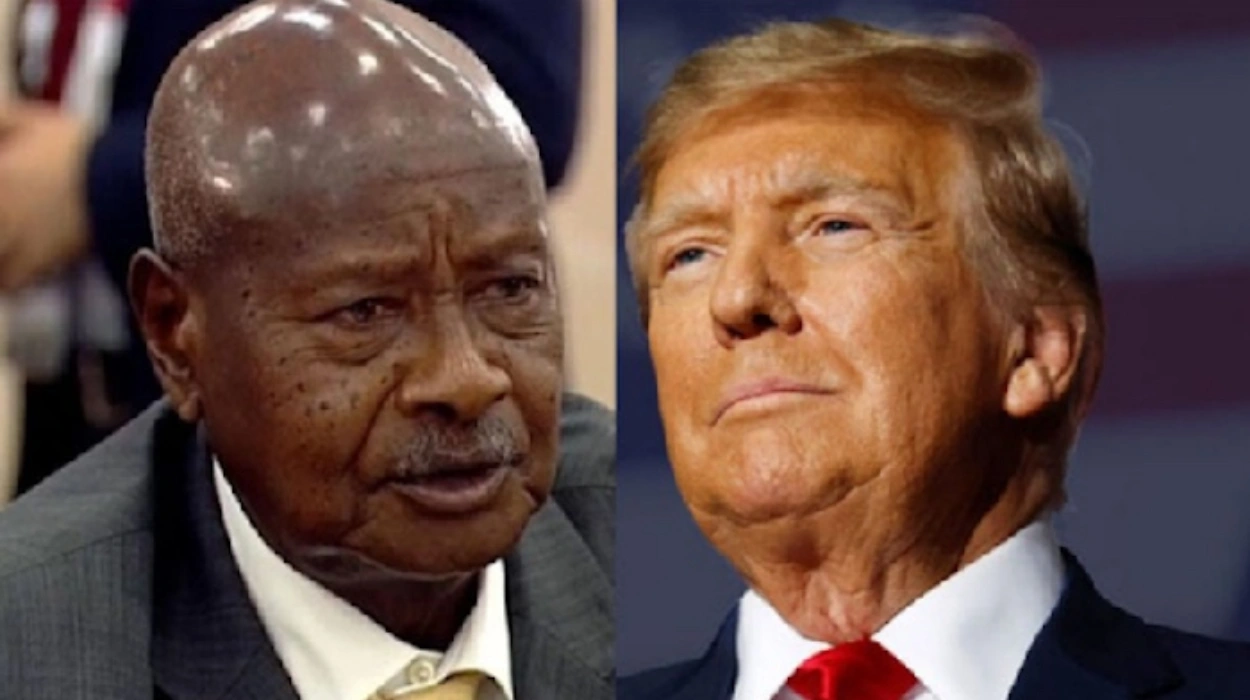In August 2025, Uganda confirmed a bilateral deportation agreement with the United In August 2025, Uganda signed a bilateral deportation agreement with the United States, under which Uganda would accept a group of non-citizen migrants detained in the United States.
Third country nationals who do not have criminal records and are not unaccompanied minors are the persons targeted under this policy. While there are official statements that the deal is temporary and humanitarian in nature, there are still unknown specifics on what criteria go into the selection process, how the processing mechanisms work, and what support systems are available.
Ugandan officials described the agreement as being for people “chiefly of African descent,” but no public figure has been mentioned about the number of migrants who are likely to enter. The agreement complements the Trump administration’s broader immigration enforcement framework, which in 2025 includes similar deportation partnerships with countries such as Honduras and Rwanda. Legal foundations for the policy cite US immigration law provisions allowing the redirection of asylum seekers to third countries deemed “safe.”
As US authorities accelerate removals under this framework, Uganda’s selection reflects strategic calculations, including existing migration infrastructure and prior engagement in regional refugee hosting. However, these same factors are now intersected with considerations of legal preparedness and long-term societal capacity.
Sovereignty challenges and parliamentary exclusion
The deportation agreement has been a source of domestic backlash because it was negotiated in secret. The deal was passed without going through Uganda’s Parliament, a procedure that is against the rules as well as a rule of democratic accountability, so say opposition legislators and civic organizations. Leading opposition MP Ibrahim Ssemujju raised concerns that the executive had hidden the deal so as not to face public and parliamentary exposure, and to try to get closer to Washington in the face of dwindling aid and targeted sanctions on Ugandan elites.
Former Leader of Opposition Mathias Mpuuga described the deal as “a stinking scheme”, and he cautioned that there will be long-term consequences for national sovereignty and the strain it will put on already fragile administrative systems. Uganda is already the largest refugee-hosting country in Africa, hosting more than 1.8 million displaced people – which leads to immediate questions about how its support systems can withstand the additional strain of non-refugee deportations.
Legal inconsistencies and institutional capacity gaps
Legal commentators have been concerned about the lack of transparency in the way the deported persons will be treated under Uganda’s immigration laws. Nicholas Opiyo, a human rights lawyer in Kampala, says that many of the people deported will not have documentation that is valid under Uganda’s legal code: He goes on to caution that a lack of due process protections or secure legal avenues could be in violation of domestic and international law. These critiques raise the broader governance concerns of how bilateral agreements are used in the absence of regulatory capacity or participatory mechanisms.
Further questions remain as to where migrants will be accommodated, which agencies will take responsibility, and what legal status will be passed to the deportees on arrival. With no publicly available Memorandum of Understanding, Ugandan courts and civil society are left in the dark as to key standards of enforcement.
Human rights and humanitarian implications
Uganda’s refugee protection systems are already under great operational strain. Humanitarian agencies are warning that an influx of additional arrivals – particularly if those arrivals are of uncertain legal status – could aggravate conditions for both present and incoming populations. Social services, including health care, legal services, and housing, are underfunded in many areas of the country. The sudden introduction of deported people into this environment can place them at threat of triggering systemic collapses, and of increasing social tensions.
The agreement has also been criticised for leaving vulnerable groups, such as LGBTQ+ people and political asylum seekers, open to renewed persecution. The human rights record of Uganda’s LGBTQ+ community has been constantly criticized by international organizations. Critics warn that return of migrants to such a legal and social situation may be in contradiction to non-refoulement principles raised under international human rights law.
Individual case scrutiny and public concern
Public controversy has been further ignited by individual deportation cases that illustrate the policy’s flaws. The deportation of Kilmar Abrego Garcia, a Salvadoran national with protected status in the US, triggered outrage. Garcia who lived in the US for more than a decade was deported to Uganda under the new regime because of the procedural delays in his asylum appeal and administrative discrepancies. His case was an object of great anxiety to observers of international law because it was seen as typical of the arbitrary and arbitrary nature of recent US deportation policy.
The cases below show the ways in which this kind of ill-defined agreement can lead to human rights violations. Without adequate vetting mechanisms or accountability systems in place, individuals with valid protection claims can become ensnared in the gears of geopolitical intrigue.
Political and diplomatic dynamics
The migrant deal also marks a changing diplomatic approach from Uganda at a time of changing relations with the US. President Yoweri Museveni’s government has long enjoyed a close security partnership with Washington, in particular in counterterrorism and peacekeeping operations throughout East and Central Africa. But this relationship has recently become strained over issues around governance and human rights sanctions.
By taking in the deported individuals, Uganda may be aiming to establish herself as a partner institution to the US administration in order to counterbalance some of the diplomatic and financial pressures. Such an arrangement is perceived by analysts as a transactional attempt at reconstructing bridges, albeit at the expense of domestic legitimacy or institutional integrity.
Meanwhile, the US embassy in Kampala has insisted that the arrangement is in line with the larger efforts to secure the US borders and to enforce immigration law. Officials stress that all deportees will be processed according to agreed protocols, but so far no such protocols have been made public.
Transparency and rights protection
He has made public comments on the issue, stressing on the importance of transparency, respect for the rule of law, and the protection of the rights of migrants inside the international treaties:
Africa’s largest refugee-hosting country is facing backlash over US migrant dealhttps://t.co/S7h8D3PaNH
— Jimmy Kiberu (@KiberuJimmy) August 30, 2025
His comment represents broader concerns in Uganda’s legal and civil society circles, who say that a lack of protection of these standards threatens the erosion of democratic norms and international legitimacy.
Whether these rights are successfully protected will depend on whether the Ugandan government is willing to publish terms of the agreement, consult stakeholders, and ensure that there are legal safeguards once the deportee arrives.
Balancing global migration governance and national accountability
Uganda’s involvement in the deportation deal is an outsize intervention in the global politics of migration that makes the country not only a host of refugees in the region but also a logistical point in international enforcement networks. In this new role, however, Kampala faces formidable problems if it is to balance the requirements of sovereignty and institutional integrity with those of human rights standards.
The real test lies ahead. As deportations begin, Ugandan institutions must navigate the administrative complexity of an imported migrant population with potentially diverse backgrounds and needs. Legal systems must adapt to accommodate cases of unclear nationality, legal limbo, and conflicting international obligations. Without this readiness, Uganda risks importing not only migrants but the legal and ethical conflicts tied to America’s contested immigration enforcement agenda.
In 2025, as migration policy becomes increasingly defined by bilateral deals and enforcement-driven logic, the consequences for human rights and governance in countries like Uganda become harder to ignore. The migrant deal offers immediate diplomatic benefits but may embed longer-term risks that could redefine Uganda’s political landscape and its position in the global migration order.





